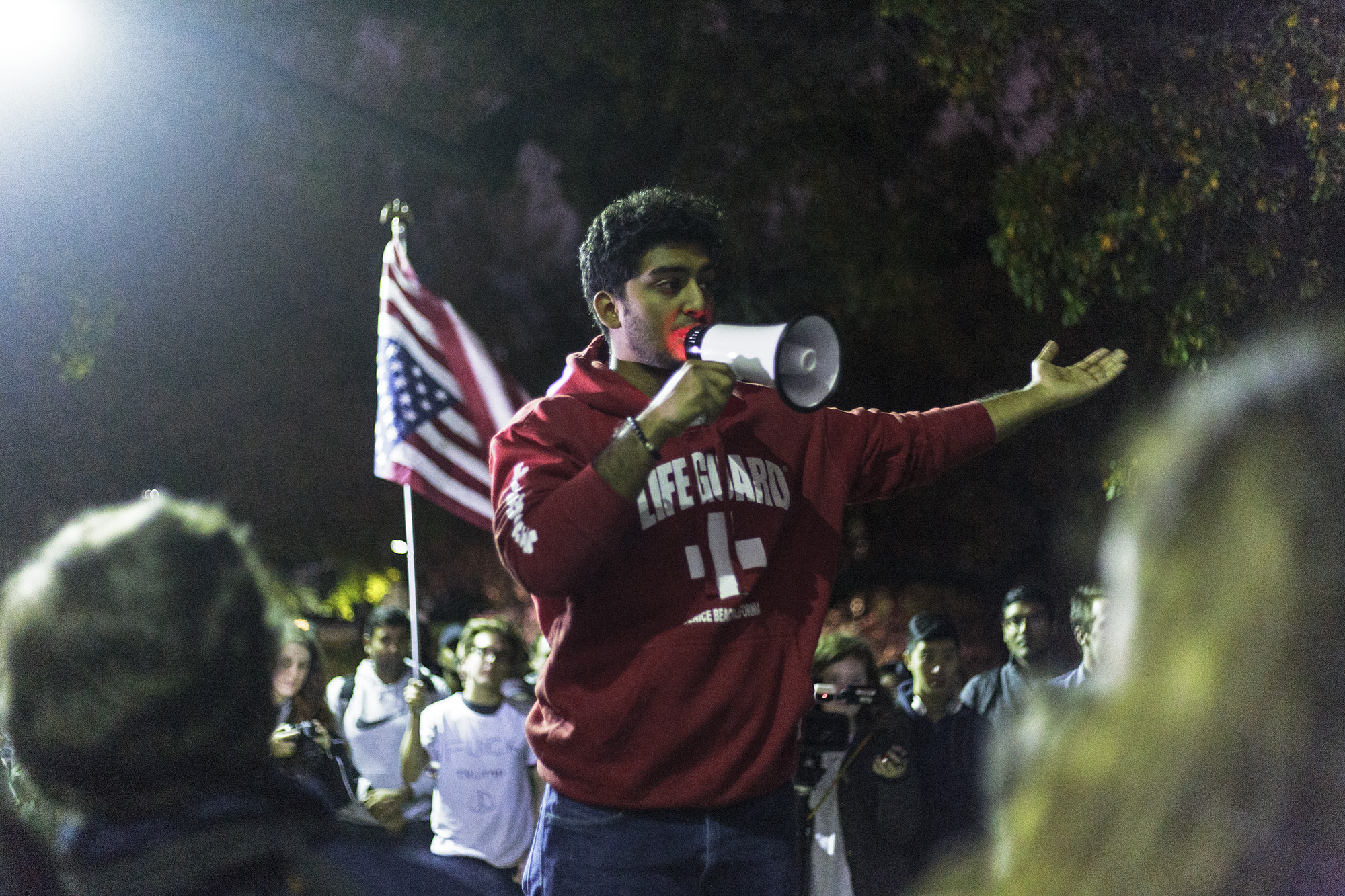Our Revolution board members were watching the election together when it became clear Republican nominee Donald Trump was going to win the presidency.
“We were all obviously very upset, but I think the first question should always be, ‘What can we do?'” said Maille O’Donnell, a sophomore government and politics and philosophy major. “And I’m proud to be with people who always ask that.”
This sentiment was the driving force behind the Nov. 11 Love Trumps Hate rally on the University of Maryland campus, which took place three days after the election.
“If this group takes action or wants to do an event … there has to be either a consequence of policy or there needs to be a consequence on public opinion,” said Our Revolution President Michael Brennan, a sophomore government and politics major. “When you just gather and stand together but don’t have a goal in mind, it kind of might dissipate over time. We don’t want that.”
Sophomore board member Casey Webbert, who is enrolled in letters and sciences, said after the election there was “a mutual feeling of, ‘What’s next? What do we do?'”
“I know a lot of people were frustrated and confused and scared, and channeling that energy into hope and motivation to make a difference, I think, is what a lot of people felt,” he said.
Webbert also attended Thursday’s walkout and called it “inspiring.”
“It’s something that keeps you going in spite of all that’s bad and evil going on,” she said.
What used to be Terps For Bernie evolved into Our Revolution after Sen. Bernie Sanders lost the race for the Democratic presidential nomination. Our Revolution is also part of the Protect UMD Coalition, which met for the first time on Nov. 14 and is composed of members from various political activism groups.
Although Brennan predicted that Trump would win a year ago, he said he didn’t foresee “the amount of passion and energy that would emerge from it.” Still, from September until the election, most of Our Revolution’s activities were geared toward establishing themselves as a “formidable political group that can affect change,” Brennan said.
He added that democratic politicians should be cognizant of the disconnect some people feel from their elected officials.
“With this massive upheaval of the way things are, so to speak, [there’s] definitely room for us — for people to take us seriously, for people to just hear our voices and say, ‘Maybe the way we’ve been thinking about it has been wrong, and we should take people who are demanding change a lot more seriously,'” Brennan said.
J.T. Stanley, a senior individual studies major, sees progress as more than just advocacy.
“We can’t look over the fact that if we really want to get the change we want rather than having the same fight every time for something little, we need to really change the system,” he said.
Our Revolution will place an emphasis on reform in Prince George’s County, with hopes of implementing a Citizens’ Election Fund similar to those in Howard and Montgomery counties, Brennan said. The group will also focus on electoral reform in the county, such as ranked choice voting and name randomization, he added.
Looking toward the future, Our Revolution seeks to establish a bus route from the campus to either Shoppers or Megamart, and to legalize marijuana in the state of Maryland, O’Donnell said.
“When there needs to be an advocate for a change in university policy or county policy, state policy, I want people to understand that we are open to those goals,” Brennan said.
At the Love Trumps Hate rally organized by Our Revolution on Nov. 11, one of the protesters’ main demands was to implement mandatory in-person sexual assault training for all incoming students at this university.
“It’s just making sure we hold their feet to the fire and keep them accountable,” Webbert said. “We’re not asking for just bread crumbs anymore; we want to see some actual tangible progress, and I think that’s our role.”



